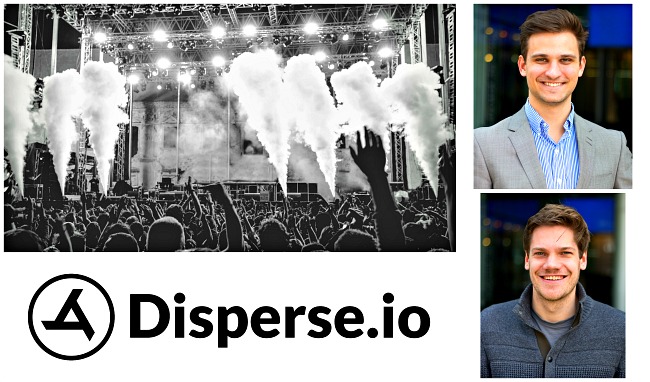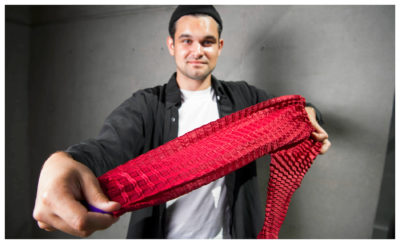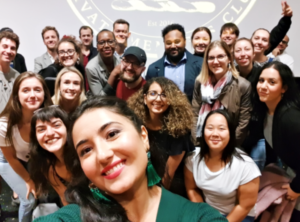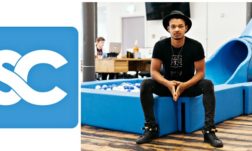Denis Konoplev’s Disperse.io technology concept uses wireless sensors to monitor overcrowding and give real-time information to help people avoid busy locations.
The life-saving tech idea aims to prevent overcrowding, which leads to crushing and injury – It uses wireless sensors to monitor people’s movements at events, in cities, and around public transport networks.
Denis, 24, and his co-founder, Felix Neufeld, 26, initially founded Disperse.io as a tool to help university students manage the problem of queueing for lunch during peak times at campus cafeterias.
“I’m not a person of half-measures”
“Though I’ve always known I would start my own business, I had first intended to go down the route of investment banking.
My now co-founder, Felix, and I started our Masters studies at the London School of Economics and Political Science in October 2014. Previous to that, I came from a background of venture capital and had a solid job offer from an investment bank before coming into the degree.
It wasn’t until an alumnus organised a Christmas dinner two months later that I spoke with Felix properly for the first time.
To this day I have no idea what it was that he said to me in those five minutes at that dinner, but I declined my offer the next day.
Our company, Disperse.io, started as a university project in January 2015.
It was launched as part of our studies on the MSc in Management of Information Systems, and Digital Innovation programme, as something called foodQ – A service which would help students on campus identify where there were queues for food at lunchtime so they could avoid these places.
We wanted to create something automated, so the AI we built would analyse and learn and, ultimately, tell us (the user) the best time to get our food and give recommendations.
Our project was a great success – Once developed, it quickly became apparent that we could use this technology for other queues, not just those for food, and decided to launch the company after completing our studies at LSE.
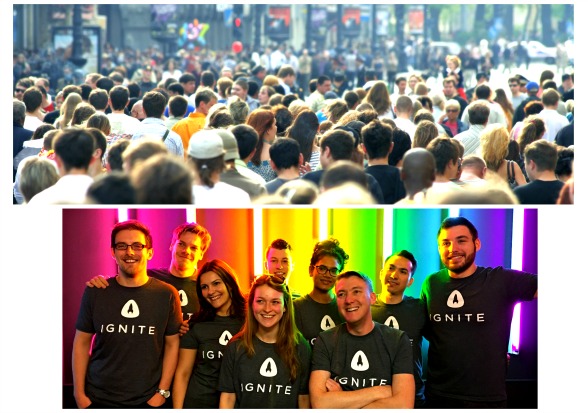
During our process of application to the Ignite start-up accelerator, we rebranded as Q(sense), a service which would help businesses and customers beat queues.
Our application to the Ignite accelerator was successful, and we were one of the ten teams selected for the program.
It provided a crucial test bed for Felix and me to iterate the service and its capabilities and begin exploring how much further we could grow our idea.
Looking back, the most important decision we made – which has been crucial in us launching Disperse.io – was to design our own way of collecting data on how busy the venues were.
The logic was that input from customers couldn’t be trusted to be consistent, which would mean individuals downloading an app and checking in at a location.
But, on the other hand, doing something complicated such as using cameras or tilling systems, like businesses typically use, meant it would be more difficult to buy into our offer.
Therefore we designed sensors and developed a machine learning algorithm, which would analyse the digital traces of people in a particular location via their smartphones, and record cluster behaviour patterns.
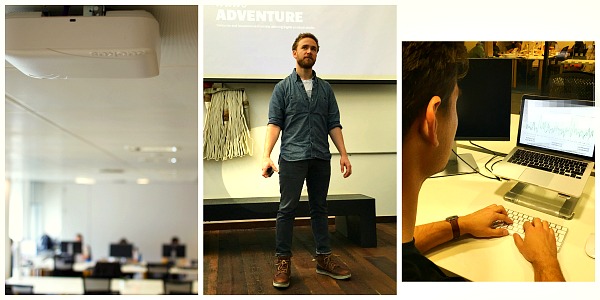
This, in turn, would tell us how many people were in the queue, sitting, or just passing by.
Disperse.io is what it is today as a result of us finding the biggest problems caused by large volumes of people, for both businesses and the general population.
For example, businesses can experience significant losses due to longer queues as customers become less willing to spend. On the London transport network, Oxford Circus Underground experiences up to 113 closures per year due to overcrowding and safety concerns in stations.
Then there are bigger social issues to consider, such as deaths at Mecca, the Shanghai Stampede, and the tragic terrorist attacks in Paris and Brussels.
Our goal for Disperse.io now is to build a system which can provide an overview of crowd movements in real time – Whether that be in buildings and venues, on transport networks or in cities.
“Running my own business is the paradox of being free”
This can provide key decision makers with relevant and actionable recommendations, such as dynamic signage and travel journey planning, to avoid potential problems and ensure safe, effective crowd management.
We’ve had a soft launch by doing trial installations to improve our algorithm and iron out any issues before a major launch.
Right now we’re working through our existing pipeline of customers.
The thing I enjoy the most about running my own business is the paradox of being freer than ever in my life to do anything I want, but being less free than ever in my life at the same time.
I’m not a person of half-measures, so the business has my complete attention, and there aren’t enough hours in the day to get everything that I want to be done. However, I truly love my job and everything ties together.”
Advice for others – “Give it your all. If you fail, you’ll live with the regret of wondering whether you could have done something differently, but if you succeed, you will wonder whether you could have done better – No half measures.”
More Stories
Ryan Yasin’s Fashion Tech Startup ‘Petit Pli’ Is Solving The Issue With Fast Fashion
A Private Members Club Helping Students Get “The Finer Things In Life” – The Luxury Student


